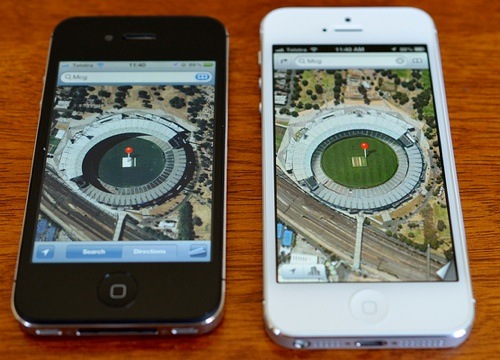By Rob James
The recent Google Maps controversy has been a rare misstep for Apple. The company’s proprietary maps app was intended to replace Google Maps as the default map service for iOS 6 and the iPhone 5, but came with multiple bugs, ranging from missing locations to wrong directions.
Problems with the app have led to suggestions that Apple should have stuck with Google Maps, which remains the leading option for users in terms of updates and detail for different platforms. However, while looking at Apple Maps’ problems, and the backpedalling that has taken place in the past few weeks, it is possible to suggest a future for a Google Maps-less Apple.
Apple’s motivation for switching to their own maps app was, perhaps understandably, affected by their handing over of a lucrative license to Google for every iOS device that used their rivals’ app. However, and despite being pitched as an advanced maps app, Apple Maps has been roundly criticized for its bugs, which notably include a furniture museum being located in a river.
The September launch of the app saw an initial 35% of user downloads sink to 4%. Apple has since publicly apologized for their mistakes with the app, and have gone as far as to recommend other apps, including Google Maps.
In Apple’s defense, part of the problem with Apple Maps comes down to its rapid development and issues with Tom Tom, who were responsible for co-developing it. However, the main flaw to Apple’s approach sees to have been an arrogance over competing with Google Maps, which has been the go-to app for everything from laptops to business mobile devices.
In this context, Apple may have been better off avoiding the embarrassment they’ve suffered by maintaining a compromise agreement with Google. There is a sense, though, that Apple’s future will still involve their own maps apps, albeit with some major upgrades.
An important thing to remember with Apple Maps is that it is improving, with one of the advantages of continual upgrades being that early bugs are being fixed. This is the case with most new apps, and Apple’s main mistake appears to have been to build up expectations too soon for what is arguably still a beta product. There’s also a lot to like about Apple Maps’ interface, which has a particularly striking top-down 3D mode. Moreover, the Apple Maps apology is less embarrassing than the public climbdown that followed "antennagate" with poor phone signals a few years ago.
For the time being, at least, Apple will continue to offer its users the choice of downloading Google Maps -- which they always had the option to do. Work will continue on Apple Maps, though, which will mean that Apple’s faith in their design and technology is likely to be vindicated.
Apple Maps is a rare blunder from the company, but one that they’ll focus a lot of energy into repairing as soon as possible. The consumer will benefit from this competition with Google Maps having to upgrade faster and refine what is already a sizeable advantage over Apple to demonstrate their superiority in the future.
Rob James is self-employed and recommends (www.dclmobile.co.uk/) business mobiles by Distinct Connections, for all your mobile needs. He uses Internet marketing to promote himself, and recommend you optimise your site for mobiles too. He can usually be found blogging about mobile related topics, and loves checking out the latest gadgets.













